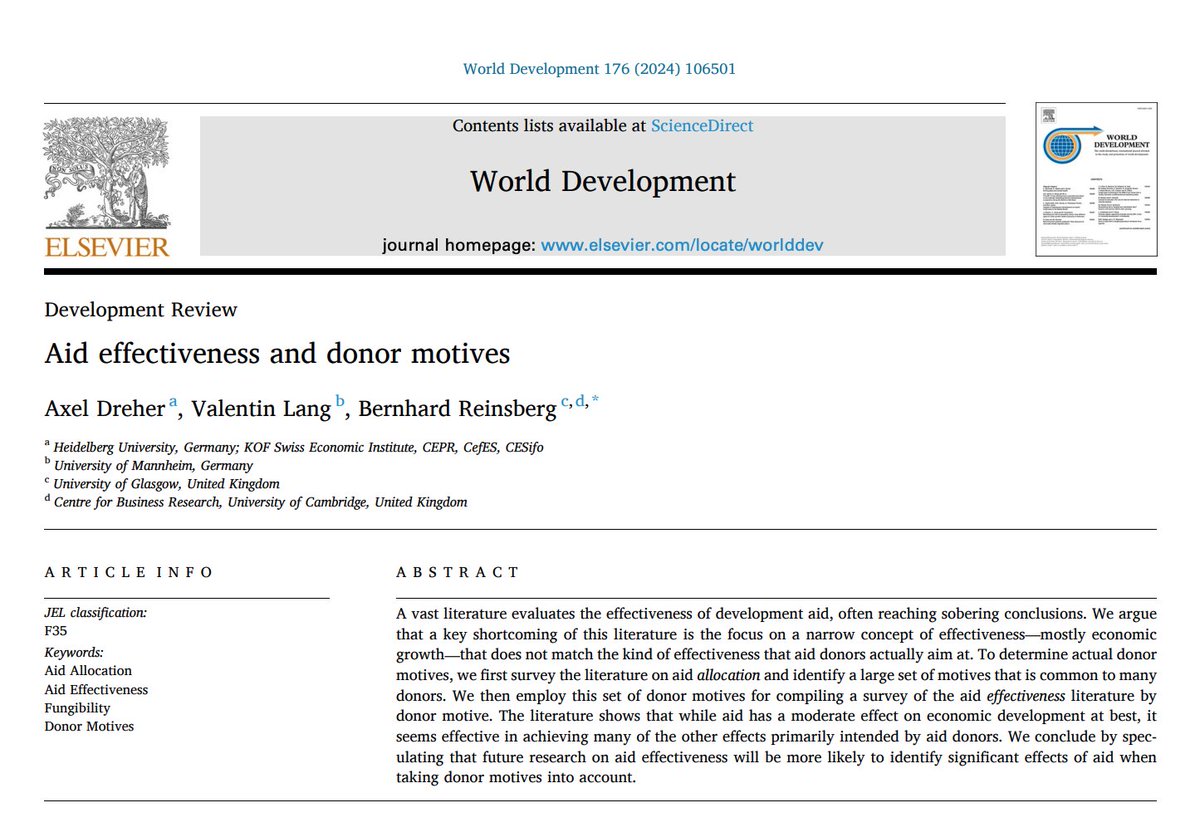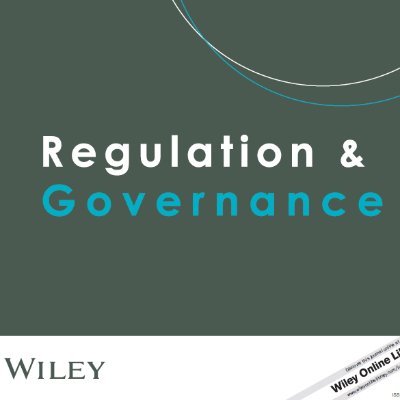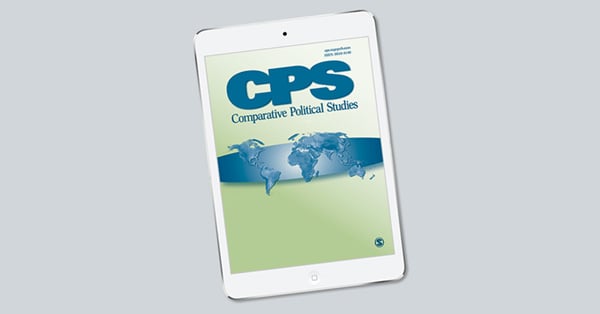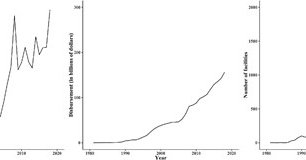
Sujeong_Shim
@ShimSujeong
Followers
464
Following
484
Media
8
Statuses
216
Assistant Professor @NYUAbuDhabi, Former Postdoc @IPZ_ch, PhD @uwpolisci. IPE/IO/public opinion
Abu Dhabi
Joined September 2018
❗️🚨 New paper alert! @ISQ_Jrnl 🎉 This project has been a rewarding journey with Tuuli —from coffee chats and whiteboard scribbles to Zoom calls, workshops, and a visit to the World Investment Forum. Huge thanks to our RAs, friends, colleagues, and reviewers for their support!
Our article with @ShimSujeong on Exit Clauses in International Agreements is now Forthcoming at @ISQ_Jrnl! https://t.co/HyQ4QlPZpf At a time when concerns for durability of intl. cooperation abound, we show how governments balance between their commitments and accountability:
1
2
23
It was a great pleasure to be part of the incredible event. A big shout out to @cobrienudry, and fingers crossed for many more SWIPE conferences to come!
0
1
15
How does victimization status affect politicians' responsiveness? Using experimental evidence from postwar Colombia, @joan_barcelo_ & Mauricio Vela Barón causally link elected official behavior to conflict victimization. #APSRNewIssue
https://t.co/dl7ITGDHDG
0
10
30
Is aid effective? Depends on the outcome you look at! In our new @WorldDevJournal review, we show aid is more effective for outcomes that donors aim to affect: - building int'l alliances - promoting democracy - intensifying trade ties, ... Motives matter! https://t.co/Ao9AdyTBlU
6
37
136
We look at the IMF’s varying attitudes toward Argentina and Greece over time and find support evidence for the claims.
0
0
2
When the IMF perceives minimal contagion risks, however, it focuses on moral hazard and willingly cuts its lending ties upon noncompliance.
0
0
2
We argue that IMF withdrawals are conditoned by global contagion risk. During periods of high contagion risk, the IMF tends to prioritize its mandate by continuing its lending despite noncompliance.
0
0
2
Excited to see this paper forthcoming! Why does the IMF exits its lending relations before a member country resolves their crisis? This is particularly surprising given that the Fund often resumes its lending shortly after its withdrawal. @stephenbkaplan
@ShimSujeong & @stephnbkaplan argue the IMF exits lending relationships before member states resolve financial crises due to global contagion risk. The tension between global stability and limited resources prompts early exits. https://t.co/8pehVgSKo8
#RegGov @WileyPolitics
7
5
30
I am presenting a paper with @TA_Huikuri on exit clauses in international agreements. Why do states sometimes push for longer commitments with hard exit clauses and other times sign on shorter-term agreements? Please come join GRIPE this Wednesday morning at 9:30 EST!
1
5
26
🚨 My article with @HaillieLee A. Tomashevskiy is online @cps_journal. We deploy an investment choice experiment in Venezuela, Ukraine & Egypt to learn how investors evaluate connected companies. tl;dr: they fear expropriation of their investment. Link:
journals.sagepub.com
In this experiment, we manipulate corporate political connections to assess whether a company’s political influence serves as a barrier or an inducement to inve...
3
8
39
We show that foreign political events related to certain policies can impact voters' policy attitudes in other countries, with events highlighting difficulties leading to more favorable attitudes and those emphasizing opportunities resulting in more skeptical policy sentiments.
🚨 Publication alert! @giorgiomalet & @stefwalter__ published a new article in 🇪🇺European Union Politics on "The reverberations of British Brexit politics abroad"
1
9
40
Finally, the polls imply that clear communication about an IMF program could create more supportive public, especially among younger Tunisians and women. (5/5)
0
0
1
Political messages are also vital. A short message that the president believes the IMF deal “could compromise Tunisia’s political and economic stability” statistically increased concerns about sovereignty and reduced support for the deal among President Saied’s supporters. (4/5)
0
0
0
The mixed feelings could be driven by lack of quality understanding of the IMF deal: Although the IMF does not have preferences on immigration policies, many Tunisians believe that the deal would restrict migration to Europe. (3/5)
0
0
0
1) The opinions of ordinary Tunisians are more diverse than their uncooperative leaders. On average, Tunisians give the IMF deal an approval rating of 43 using a feeling thermometer scale of 1 to 100. 1 out of 10 citizens are being extremely supportive of the program. (2/5)
0
0
0
Public opinion about IMF programs: @rmkubinec and I conducted online polls in Tunisia, where the government refused to negotiate with the IMF despite the collapsing economy. How do ordinary citizens perceive an IMF program? (1/5)
4
2
12
NYU Abu Dhabi (@NYUAD_SocialSci) is thrilled to host the 11th Asian Political Methodology Conference (@PolMethSociety) and the *first ever* MENA PolMeth Conference on January 11-12, 2024. Submit your abstracts here by *August 1*:
nyuad.nyu.edu
MENA and Asian Polmeth 2024, hosted by the NYU Abu Dhabi Social Science Division.
0
23
35
Looking forward to presenting joint work with @heinkelmannwild and @ShimSujeong on how governments present the #IMF to domestic audiences. Do they use the Fund as a scapegoat? Do they defend the IMF?Come join if you’re interested in legitimacy of IOs!
Is the International Monetary Fund the perfect #scapegoat? Join the debate! Join next week's #BrownBag with @TomMcCraeHunter, postdoc researcher at @UZH_ch @IPZ_ch. 📆13 June - 12:15 📍Silva Casa Auditorium, WTI, Bern 👉 https://t.co/cP34qxQ2pH
0
5
6
🚨 FirstView day for my newest paper @polanalysis! Would you like to reduce costs and improve performance when hand-labeling documents for machine learning projects? Read on...🧵1/4
2
22
65
How do some of the most closed #dictatorships have a sustaining and even thriving #economy? #Oil🛢️ has been the usual answer. In this new @ISQ_Jrnl article with @ruilinlai and Ilker Karaca, we offer a new no-oil answer: GLOBAL FINANCIAL MARKET 💸💴💰💶 https://t.co/k3NkZ0ag8b
academic.oup.com
Abstract. This paper explores the link between political institutions and the size of global bank loans received to fund project finance (PF) transactions,
3
33
112
















